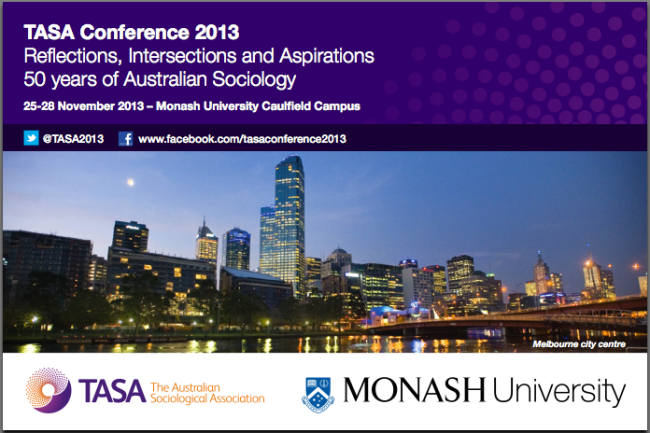reblogged from the Institute of Culture and Society Blog
 Two of the most recognisable figures of the global game, Sir Alex Ferguson and David Beckham, OBE, announced their retirements within the space of a week. The former’s was major news only for the legions of association football (soccer) fans around the world, and especially for supporters of its most glamorous club, Manchester United. The latter’s was registered even by those with little or no interest in football.
Two of the most recognisable figures of the global game, Sir Alex Ferguson and David Beckham, OBE, announced their retirements within the space of a week. The former’s was major news only for the legions of association football (soccer) fans around the world, and especially for supporters of its most glamorous club, Manchester United. The latter’s was registered even by those with little or no interest in football.
Their contrasting careers and personalities tell us something of import about the profound changes to sport, celebrity and masculinity that occurred over the decades spanning these two notable football lives.
Those changes are inscribed in the very faces of ‘Fergie’ and ‘Becks’. The redoubtable Ferguson’s visage bears all the marks of ‘old school’ footballing men. A craggy Scot in the mould of the legendary Bill Shankly of Liverpool FC, he was normally seen during matches scowling through slanted eyes, furiously masticating a strip of gum, bibulous features becoming ruddier, constantly infuriated by a hostile, vindictive world.
Ferguson’s dealings with the media were grand projections of this uncompromising demeanour – when he spoke to them at all, and caught reluctantly in the TV camera’s glare, he was wary and curt, and often acerbic and contemptuous. It was characteristic that he did not hold a media conference to announce his impending retirement. Even when he celebrated victory, Sir Alex seemed still to be settling nameless scores, relishing his ‘alpha’ triumph over inferior pretenders.
Ferguson was an old time football insider, keeping a generally low profile outside the game apart from a predictably fractious share of some horseflesh. He was disdainful of outside distractions, and especially of ‘new’ football men whose attention to style contrasted so obviously with his own determinedly gruff presentation of traditional masculinity. Which is where David Beckham comes in.
Tutored by Ferguson from his teenage years onwards, Beckham was not to acquire his mentor’s aggressive mannerisms. Blessed with androgynous boy band good looks, his halting high voice set him apart from the machismo displayed by many of male football’s managers, players, owners, board members and fans of the early nineties and preceding decades.
Beckham’s shyness and infamous initial inarticulacy came across as vulnerability. He was never to be the kind of meat-and-potatoes British footballer with whom Ferguson was instinctively more familiar and comfortable. The founding of the English Premier League in 1992 corresponded with Beckham’s senior professional debut.
The flood of BSkyB subscription television money that followed transformed English football’s labour force – within a few years, the majority of managers and players were from overseas, especially continental Europe, the prior object of much Little Englander footballing antagonism. Sir Alex was now able – indeed, required – to recruit the best multinational football talent available.
The British tabloids were wrong-footed by this new cohort of multi-lingual footballers in better suits, several of them suspiciously lacking interest in the heavy drinking teammate bonding rituals of yore. Beckham began to resemble and, indeed, to symbolise the new footballer look, improving his speech and running through an extensive repertoire of designer styles. The term ‘metrosexual’, coined in 1994 by the English journalist Mark Simpson, appeared to be made for him.
When Beckham dated and then married Spice Girls singer Victoria Adams, and the ‘Posh’n’Becks’ brand was formed, football, though still important, became only one component of what was now Beckham’s full-blown celebrity. He, his personal management and spouse understood that 21st century sport could not be confined to training ground routines and big match days, becoming the springboard for much more beyond.
Although also a major beneficiary of the inflated capital and media attention – and top end players – flowing from the intensive commodification of football, its attendant frippery and foppery sat ill with the dour intensity of Sir Alex. This resentment helped propel the loose football boot that accidentally cut Beckham’s eyebrow in one of Ferguson’s notorious ‘hair dryer’ displays of player abuse.
The incident comprehensively captured the gap between their iterations of masculinity as Beckham publicly bore the scars, assisted by an Alice band for maximum visibility. Soon he had left Manchester for Madrid, then Los Angeles, and finally Paris, and a very different global celebrity and sometime footballer existence unfolded.
Ellis Cashmore, in his academic profile Beckham, argues that “Masculinity will never be the same after David Beckham”. This does not mean that he introduced compulsory metrosexuality to football but, like David Bowie in popular music before him, he helped open up new, less constricting possibilities for the appearance and performance of being a man. Crucially, he did it in the most popular male contact sport in the world.
When Beckham announced his impending retirement, he did it in controlled media space, with scrupulously sculpted hair and beard, tattoos hidden beneath immaculate suit and tie. Ferguson sent out a message and was soon sighted in his conventional match-day overcoat, gesticulating and barking orders in the dying days of his manager role as if nothing had changed. For the Sir Alex persona nothing would or could. Beckham, by contrast, had already wrung enough changes of look for several life times. Separated by a generation, the very different figures cut by Fergie and Becks provide, from the world of football, a glimpse of a much wider process of masculinity in transition.


